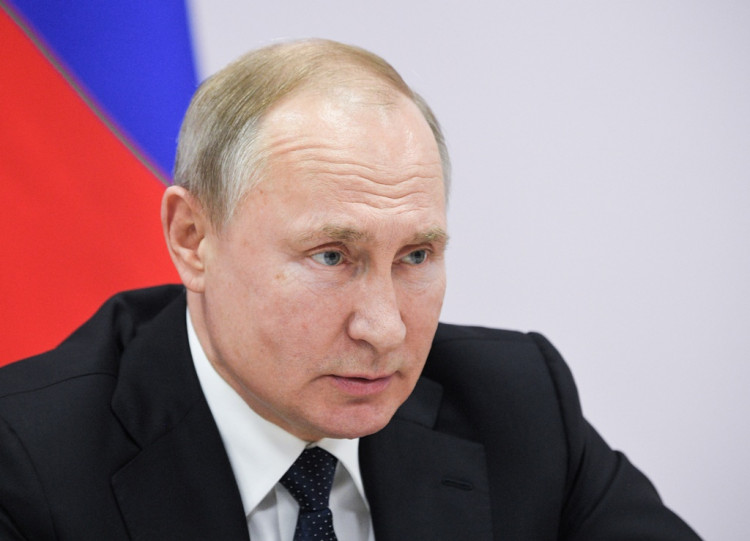The United States Intelligence Community (USIC) confirms Russia is now interfering in the U.S. presidential election set for November 3 and has chosen to again support Donald Trump. It also says Russia considered backing Sen. Bernie Sanders, I-VT, currently the leading presidential contender among Democrats, before reconfirming its support for Trump.
A briefing February 13 to the House Intelligence Committee on 2020 election security by a USIC official revealed Russia has already begun meddling in the 2020 election with the goal of helping Trump win, according to multiple sources cited by The New York Times and CNN.
The vast extent of Russia's pro-Trump efforts, including hacking, weaponizing social media and attacks on election infrastructure was revealed to lawmakers by Shelby Pierson, USIC's top elections security official and chair of the Election Executive and Leadership Board. Pierson pointed out Russia does favor Trump but also said helping Trump isn't the only thing Russia is trying to do. Another of Russia's aims is to raise questions about the integrity of the elections process.
James Clapper, who served as director of national intelligence under President Barack Obama, said it's "quite predictable" Russia will again try to mess-up the election.
"This is not a big surprise, but it illustrates the tremendous challenge that the intelligence community has where they're teeing up facts that our President doesn't want to hear, and with a result that the messenger got shot in the form of Joe Maguire being asked to leave," said Clapper.
Trump later fired the acting director of national intelligence Joseph Maguire, who authorized the briefing to the House members. Trump has consistently denied Russia and its interference in 2016 helped get him elected president despite irrefutable proof presented by USIC to the contrary.
In 2017, USIC collectively concluded Russia implemented an influence campaign that helped Trump win the presidency. A declassified assessment released by the CIA, the National Security Agency and the FBI concluded: "We assess Russian President Vladimir Putin ordered an influence campaign in 2016 aimed at the US presidential election. Russia's goals were to undermine public faith in the US democratic process, denigrate Secretary (Hillary) Clinton, and harm her electability and potential presidency. We further assess Putin and the Russian Government developed a clear preference for President-elect Trump."
This conclusion triggered the investigation by former special counsel Robert Mueller into Russian interference on behalf of Trump in the election.
The USIC assessment said U.S. intelligence agencies uncovered an extensive Russian influence campaign, which began as an effort to undermine Clinton's "expected presidency." Russia's anti-Clinton campaign involved Russian state-owned media and social media campaigns and hacking the computer servers of the Democratic National Committee. Russia passed on the hacked documents to WikiLeaks, which later revealed the contents to the world.
"We also assess Putin and the Russian Government aspired to help President-elect Trump's election chances when possible by discrediting Secretary Clinton and publicly contrasting her unfavorably to him," said the USIC report.
In last week's briefing, Congressional lawmakers were also told Russia might be out to assist Sanders to clinch the Democratic nomination, but the type and scope of the Kremlin's interference remain unclear. Sanders responded to this claim saying, "I don't care, frankly, who Putin wants to be president. My message to Putin is clear: stay out of American elections, and as president I will make sure that you do."
USIC officials are said to have told Sanders about Russia's plan to help him win the Democratic nomination. They also said they found that overall, Russian and its president, Vladimir Putin, have "developed a preference" for Trump to win in November. They also emphasized Russia's main goal in its renewed election meddling is to sow discord among Democrats and Republicans.
Intelligence analysts say targeting Sanders is part of Russia's "dezinformatsiya," or disinformation campaign. USIC has long expected, and has prepared for, Russia's interference in the 2020 election, especially after successfully supporting Trump in 2016.
Trump has dismissed reports of Russia's preference for him in the 2020 election as "disinformation."






